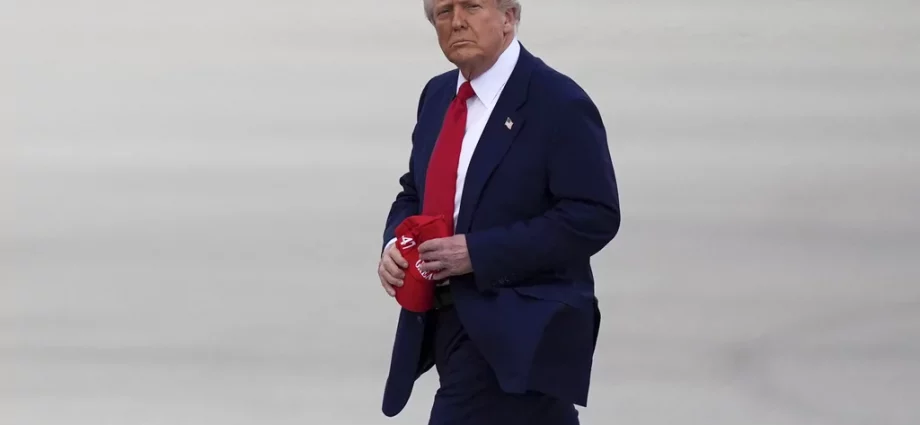President Donald Trump’s slew of “Liberation Day” tariffs announced Wednesday has investors worrying his protectionist politics could plunge the United States, and the world, into a recession.
The stock market plunged on Thursday, experiencing its worst day since the COVID-19 pandemic began in 2020. The approximately $3.1 trillion loss in market value sparked panic from investors.
JP Morgan analysts put the chance of a global recession at 60% if the tariffs are sustained, up from 40% in 2024.
“The effect of this tax hike is likely to be magnified—through retaliation, a slide in US business sentiment, and supply chain disruptions. The shock is likely to be only modestly dampened by the flexibility tariff hikes afford for further fiscal policy easing,” JP Morgan’s Chief Economist Bruce Kasman wrote.
Goldman Sachs similarly increased its projected likelihood of a recession occurring in the next year from 20% to 35%.
“The increase in our recession probability reflects the sharp deterioration in household and business confidence in the outlook over the last month,” Goldman Sachs’s report stated.
Investors’ dismal predictions come as the U.S. dollar suffered one of its biggest drops in years on Thursday, falling as much as 2.1%, the steepest decline since 2005, according to Bloomberg News. The drop signaled a downturn in buying power for consumers.

The outlet’s analysis found that the value of the dollar also dropped in every country in “the Group of Ten,” which is a coalition of the world’s eleven leading industrialized countries, while the euro and other alternative currencies made sharp gains.
Commerce Secretary Howard Lutnick has pressed back on concerns about the U.S. currency, saying the Trump administration’s tariffs are necessary to stop other countries from “manipulating” the value of the dollar.
The price of oil also crashed following the Trump tariff announcement, dipping by more than $5 per barrel in an apparent response to Saudi Arabia, Russia, Iraq, UAE, Kuwait, Kazakhstan, Algeria, and Oman’s decision to increase oil production by 411,000 barrels a day starting in May.
Some analysts suggest that while lower energy prices may seem like a good deal to consumers in the short term, the tariffs could stir up a global trade war, ultimately slowing growth, leading to lower demand for energy, and carrying long-term consequences for the industry.
Despite troubling economic indicators, there have been some glimmers of hope for the White House.
On Friday, the president announced that Vietnam is seeking to remove its tariffs against the U.S. to incentivize the Trump administration to drop reciprocal tariffs against the Asian country.
Government data additionally showed a surge in U.S. hirings as another bright spot for the White House. The U.S. Bureau of Labor Statistics reported the country added 228,000 jobs in March, up from 151,000 the previous month.
President Trump welcomed the jobs numbers. “GREAT JOB NUMBERS, FAR BETTER THAN EXPECTED. IT’S ALREADY WORKING. HANG TOUGH, WE CAN’T LOSE!!!” he said in a post to Truth Social.
MOST ENERGY IMPORTS SPARED FORM TRUMP’S SWEEPING TARIFFS
As of Friday, Federal Reserve Chair Jerome Powell has declined to offer a definitive take on the state of U.S. markets.
“While uncertainty remains elevated, it is now becoming clear that the tariff increases will be significantly larger than expected. The same is likely to be true of the economic effects, which will include higher inflation and slower growth. The size and duration of these effects remain uncertain,” he said at an event with business journalists in Virginia.


